
10 Best Practices for Employee Training in Healthcare
Effective employee training is crucial in the healthcare industry…
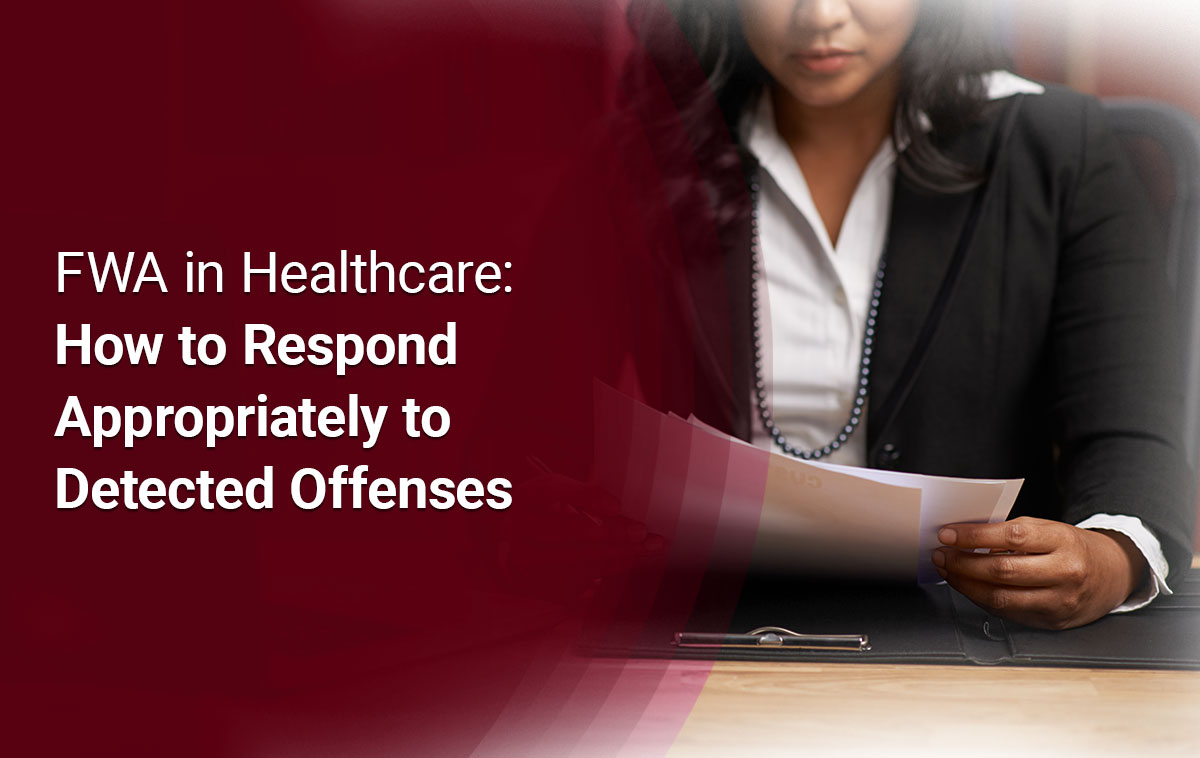
FWA in Healthcare: How to Respond Appropriately to Detected Offenses
Fraud, Waste, and Abuse (FWA) can have serious implications for the healthcare industry, affecting patient care, financial stability, and organizational integrity. Detecting and responding to FWA offenses promptly and appropriately is essential to protect the well-being of patients, uphold ethical standards, and maintain regulatory compliance.
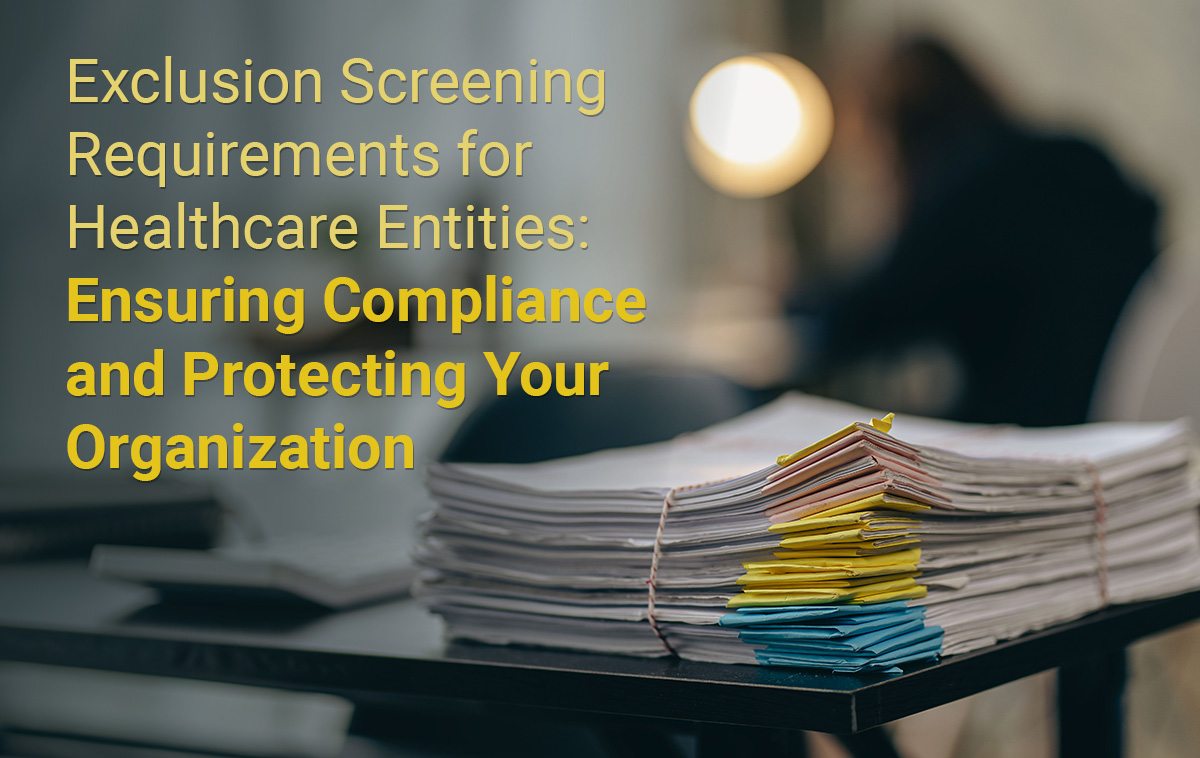
Exclusion Screening Requirements for Healthcare Entities: Ensuring Compliance and Protecting Your Organization
One crucial aspect healthcare entities must prioritize in the ever-evolving landscape of healthcare regulations is exclusion screening, which is the process of checking individuals and entities against various exclusion lists to ensure compliance with federal and state regulations. Failing to comply with these requirements can have serious consequences for your organization. Read on to explore the importance of exclusion screening, its benefits, and how partnering with the right experts can help you navigate this critical aspect of healthcare compliance.
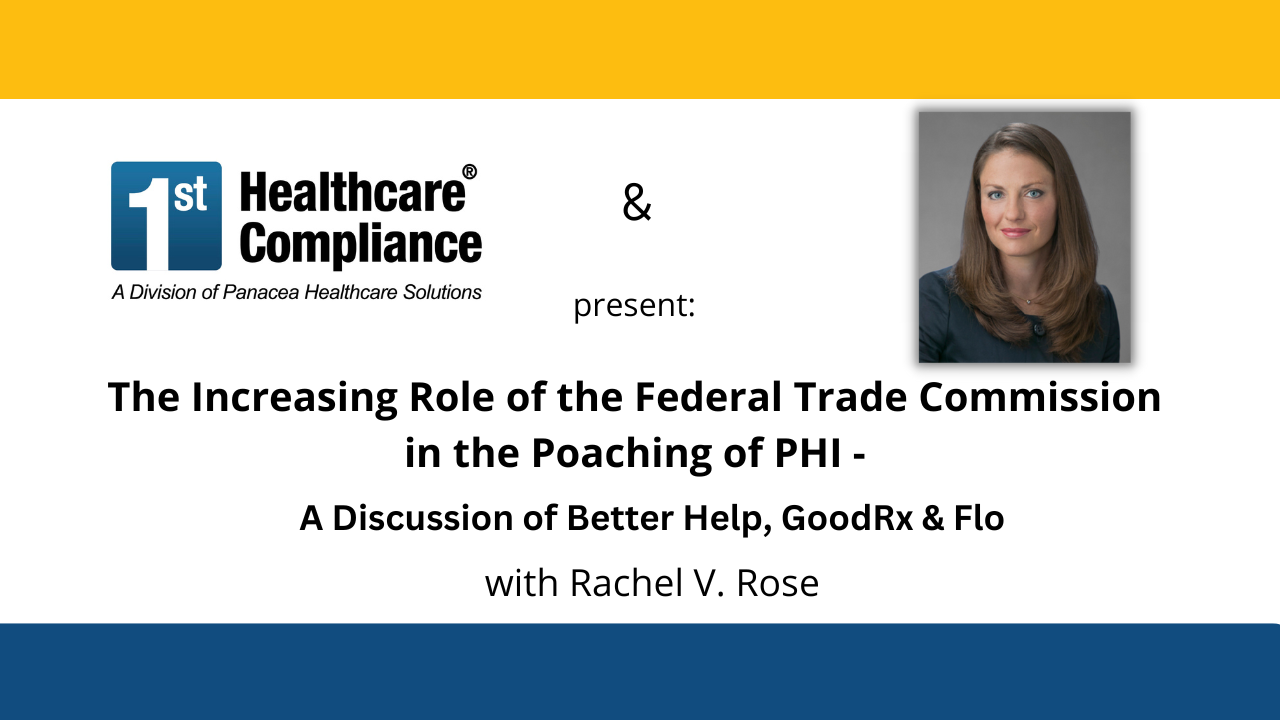
The Increasing Role of the Federal Trade Commission in the Poaching of PHI – A Discussion of Better Help, GoodRx & Flo
Rachel V. Rose, JD, MBA, principal with Rachel V. Rose – Attorney at Law, P.L.L.C., Houston, TX will be presenting this informative webinar. Cybersecurity risk management and the potential for enforcement actions is not diminishing. An area of increasing interest by the FTC, the United States DOJ, and Congress is third parties taking sensitive data (especially by social media and search engine giants), including protected health information, without obtaining affirmative patient/consumer consent and benefiting financially. The U. S. Department of HHS, the agency tasked with enforcing HIPAA, also plays a critical role. The purpose of this presentation is to address different federal government initiatives, recent enforcement actions and incidents, and risk mitigation.
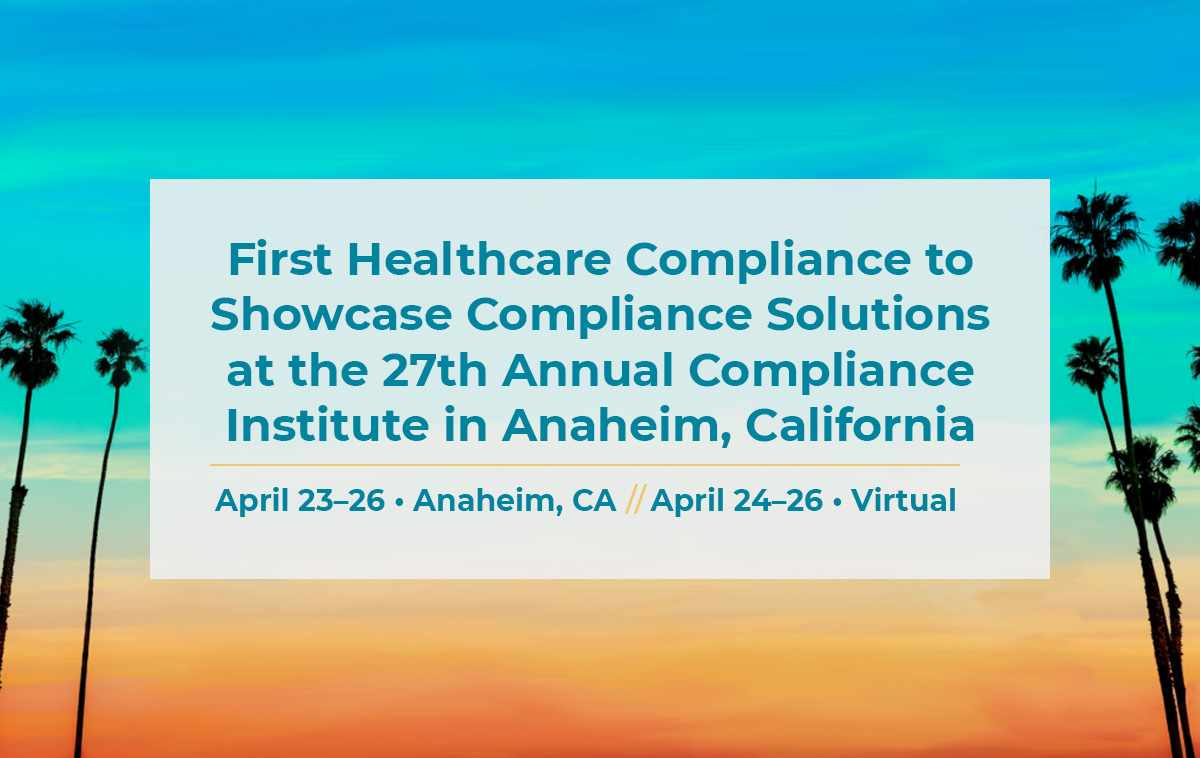
First Healthcare Compliance to Showcase Compliance Solutions at the 27th Annual Compliance Institute in Anaheim, California
First Healthcare Compliance, a division of Panacea Healthcare Solutions will showcase a range of software and learning solutions at both the Healthcare Compliance Association’s (HCCA) 27th Annual Compliance Institute, to be held April 23-26 at the Anaheim Convention Center in Anaheim, California, and the Virtual Conference, April 24 – 26.
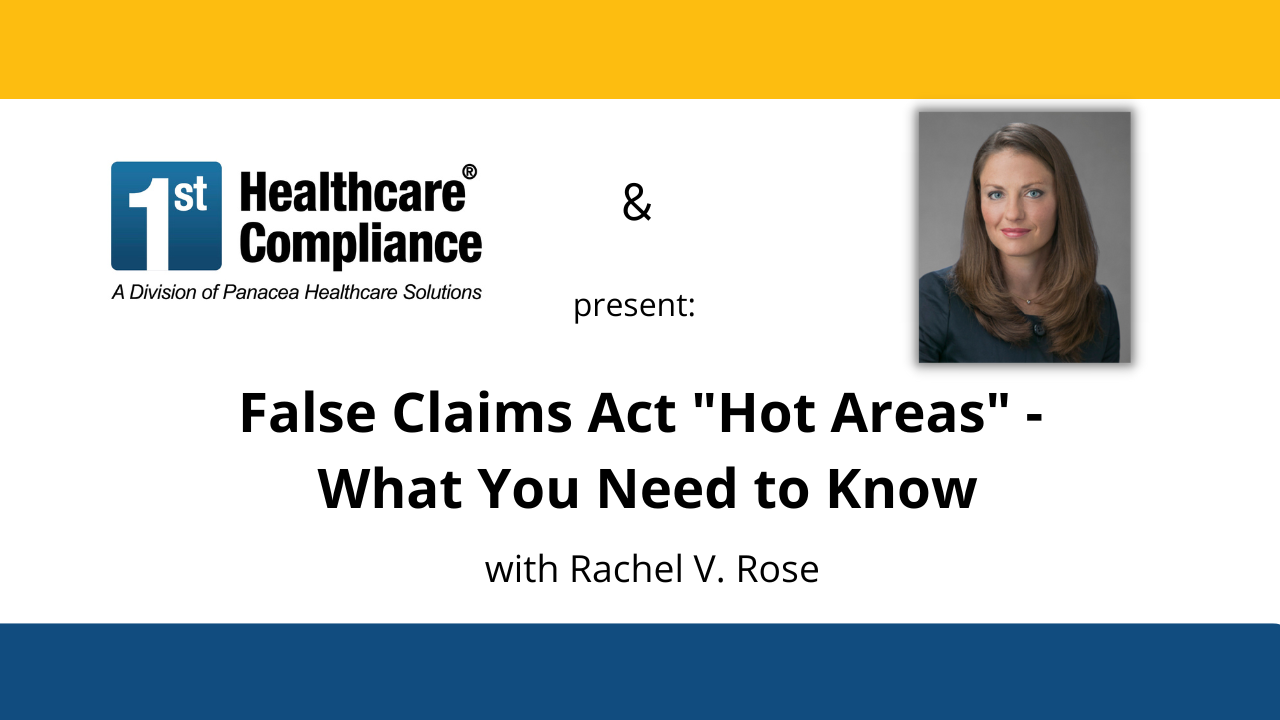
False Claims Act “Hot Areas” – What Counsel and Compliance Officers Need to Know
Expert presenter, Rachel V. Rose, JD, MBA, principal with Rachel V. Rose – Attorney at Law, P.L.L.C., Houston, TX guides us through current trends and tips. With its roots stemming back to 1863, the False Claims Act continues to be the U.S. Department of Justice's primary enforcement tool for returning money to the Federal Treasury. It is also considered one of five fundamental fraud, waste, and abuse laws, which potentially impact a provider every time a claim is submitted to Medicare, Medicaid, and other government programs because of the attestation language. The purpose of this webinar is to provide a synopsis of the False Claims Act and the current landscape in relation to coverage determinations and the federal Anti-Kickback Statute.
